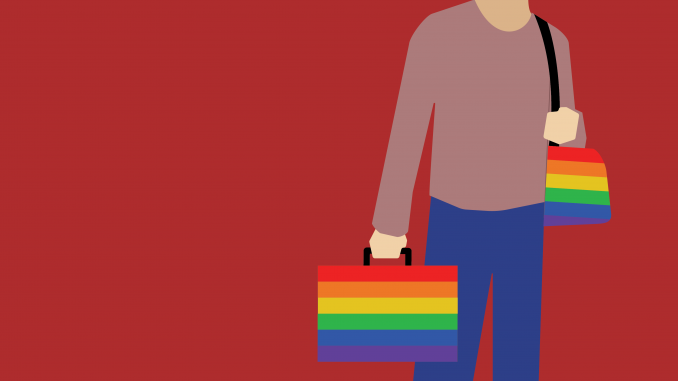
On March 31 every year, transgender people come together for International Transgender Day of Visibility, which highlights transgender and gender non-conforming people’s accomplishments and contributions to society.
Temple University’s Students For Trans Rights organization had planned to host an art show in March to promote and commemorate the day by showcasing art created by trans people and recognizing their impact on society. Like other students from queer organizations, Jackson Burke was looking forward to participating in the art show.
“Our art show was going to be a place to celebrate the work and accomplishments of trans students because our achievements as trans people are often left unrecognized,” said Burke, a freshman fine arts major, public relations representative for Queer Nerds Association and vice president of STAR. “Now those students won’t get the chance to have their work seen.”
Queer organizations on campus have canceled events and general body meetings after Student Activities stopped all non-essential events for the rest of the semester and recommended student groups consider alternatives to in-person meetings due to COVID-19.
One such event STAR had to cancel was a pool party. The event would provide a safe space for trans students to swim without dysphoria, a feeling of discomfort due to misalignment in gender identity.
Another important event for LGBTQ students is the annual Queer Prom event, sponsored by STAR, QNA and the Queer Student Union. It is rescheduled to next Spring semester.
“Many LGBTQ students do not get to have fun or memorable prom experiences in high school and Queer Prom would give them that experience,” Burke said.
Queer student leaders across campus worry about the effects of campus closure will have during a time when members need safe spaces and community the most.
“Most of the members in our clubs are very nervous about having to go home because they have a safe community here on campus,” Burke said. “Going home disrupts that safe community that was made for them.”
Brad Windhauser, a gender, sexuality and women’s studies professor, said students have expressed concerns about going home.
“Even though I believe that these decisions were made appropriately, a lot of people, unfortunately, were being forced into an unsafe environment,” he said. “These things can disproportionally affect members of our community who have less access to resources.”
There are more than 200 LGBTQ centers on college campuses across the country, according to a 2018 report by the Postsecondary National Policy Institute. Though not expressly an LGBTQ center, Temple’s IDEAL office offers LGBTQ services and resources for students.
The idea of community support is a concept that queer organizations continue to advocate for.
“They give LGBTQ students a place on campus where they feel safe and important,” Burke said. “By giving queer students space, we are able to give them a voice and empower them to create a community where we can fight for our needs.”
Losing access to support and resources provided by students groups on campus while potentially going back to volatile or unaccepting households is an issue that many queer students are trying to cope with, Vox reported.
Robyn Friedman, a senior communication studies major and communications chair for queer advocacy a cappella group Pitch, Please, feels LGBTQ-friendly environments are necessary for students learning about their identity.
“It’s important for people who are exploring their queerness to have a safe space to feel free and express that,” Friedman said. “Not a lot of people in the group have supportive homes, so this is their safe space.”
Friedman was shocked and in disbelief that her last semester as the media manager and member of Pitch, Please ended so abruptly, she said.
“It’s hard to think about it,” Friedman said. “I’m disappointed, to say the least. So much has been happening, it’s overwhelming that I haven’t felt like I reacted that much. It’s so odd and surreal that it’s kind of a lot to process.”
Windhauser advised queer students to support each other during this time of need.
“Rely on any support networks, set up text chains to check in with friends and make sure everyone is okay,” he said.
Both QNA and STAR have set up group messages to stay in contact with members. Group chats help build community between queer students and maintain contact with each other, Burke said.
“We’re still going to be able to talk and support each other, but it’s still really rough that we’re not going to be there for each other in person,” Burke said. “Not everyone has a safe and accepting home to go to, so staying in contact lets us support each other.”
For Friedman, the best thing to do in this situation is to stay in touch with friends and to remember that when this all over, she’ll see her group members again, she said.
“A lot of my time was spent with this group, I care about these people a lot,” Friedman added.
“They are my family and I’m going to miss them during this time.”


Be the first to comment